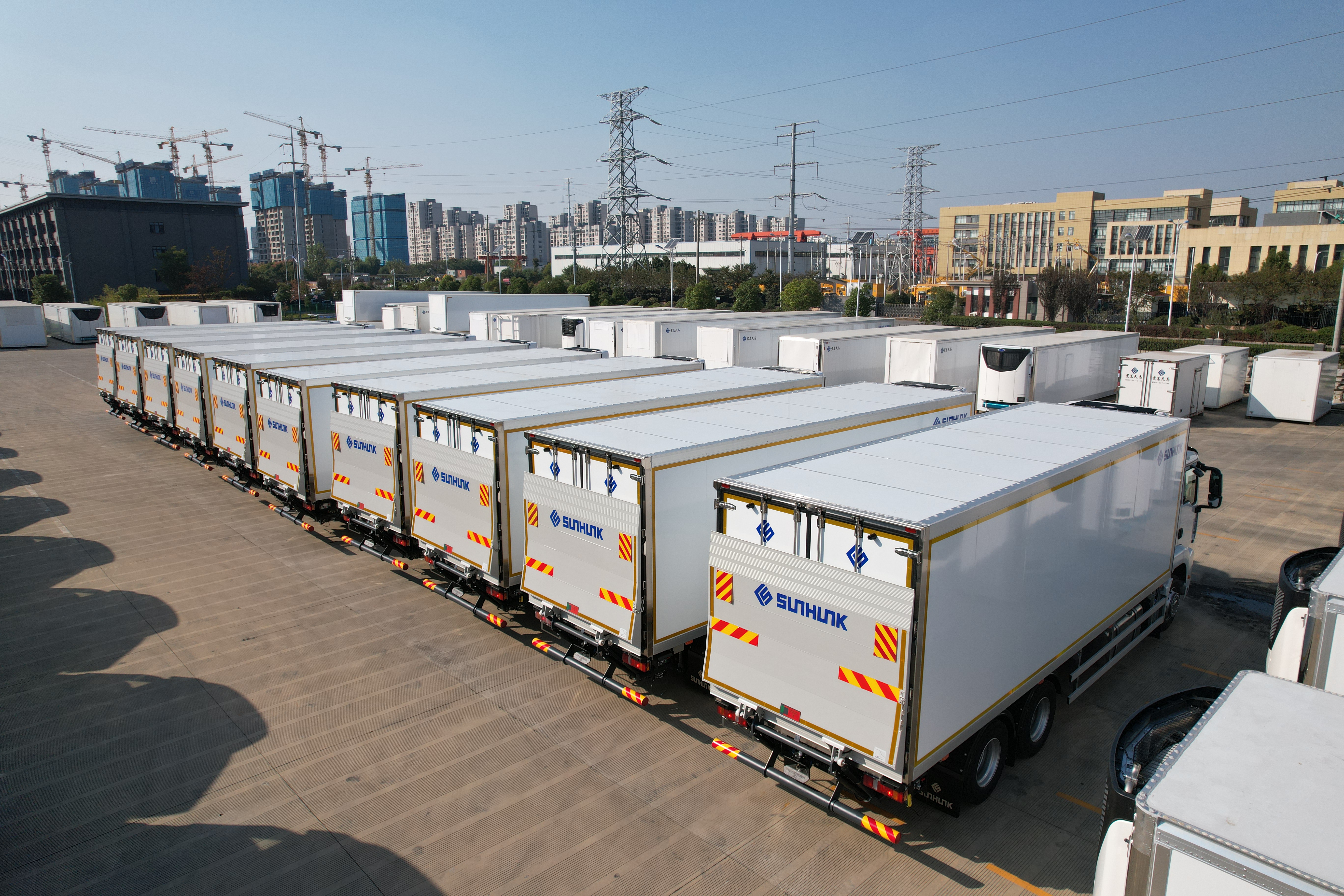- PRODUCTS
- SOLUTION
- SERVICE
- NEWS
- ABOUT US
Refrigerated box trucks can operate in extremely cold climates. By using efficient insulation materials and special heating systems, the interior temperature of the truck is maintained stable; specially made non-slip tires and reinforced braking systems enhance safety on icy roads, reducing accident rates by up to 30%.
Even in extremely low temperatures, the interior temperature of the truck can be maintained suitable for the preservation of goods. Efficient insulation materials effectively block the invasion of external cold, reducing heat loss by up to 30%. The intelligent control of the heating system can compensate for any deficiencies in the interior temperature, ensuring that the interior temperature does not drop to a critical point where goods could be damaged. Some high-end refrigerated trucks are equipped with systems that can automatically detect the interior temperature and activate heating when the temperature falls below a set minimum, such as -20°C, ensuring that the goods do not freeze.

Advanced systems in refrigerated trucks can significantly reduce fuel consumption; effective insulation materials and heating technologies can reduce energy needs by at least 15%. The application of this technology also reduces accidents and goods damage caused by extreme weather, enhancing the reliability of the entire supply chain.
Engine performance, in extremely cold conditions, the main challenges for vehicle engines are increased oil viscosity and reduced battery capacity. Using winter-specific oil can reduce oil viscosity, maintaining good fluidity at temperatures as low as -40°C, which is 50% more fluid than standard oils at the same temperature. Specially designed low-temperature batteries maintain 80% of their original starting capacity at -30°C.
Transmission and fuel systems, to prevent fuel freezing in cold weather, fuel filters and fuel lines in the fuel system are equipped with heating devices that can quickly raise the fuel temperature to above -10°C in environments as cold as -30°C, ensuring fuel fluidity and improving the overall fuel efficiency of the vehicle by about 5% to 10%.
Enhanced chassis and suspension system designs allow the vehicle to absorb impacts 30% better when facing extremely low temperatures and icy roads. If the vehicle needs to operate on ice-covered roads for extended periods. Vehicles equipped with specially made anti-slip tires and four-wheel drive systems ensure that they can maintain about 70% of their original traction on slippery ice surfaces.
Tires designed for cold environments typically have deeper tread patterns and are made from special rubber formulations, which significantly increase the friction coefficient with ice and snow. These winter tires have 20% better traction on ice than regular tires. The special rubber formulation ensures that the tires remain flexible and grippy even at temperatures as low as -40°C.

Modern refrigerated trucks are commonly equipped with ABS (Anti-lock Braking System) and ESP (Electronic Stability Program), which can respond quickly in extremely low temperatures. Refrigerated trucks equipped with these systems can reduce accident rates by 30% when braking on icy roads. Automatic Emergency Braking (AEB) systems and traction control enhance vehicle performance on slippery surfaces. Automatic systems by precisely controlling braking force and wheel power help the driver maintain vehicle stability in complex road conditions; these advanced systems can improve maneuverability on icy roads by up to 50%.